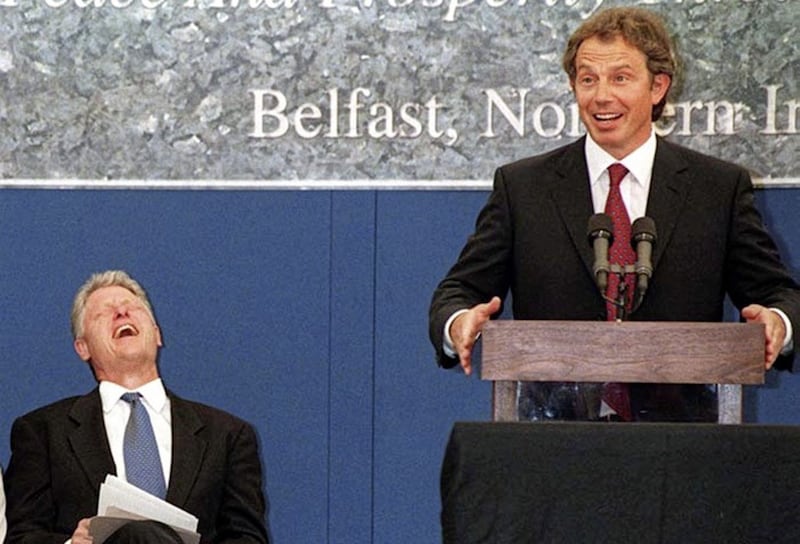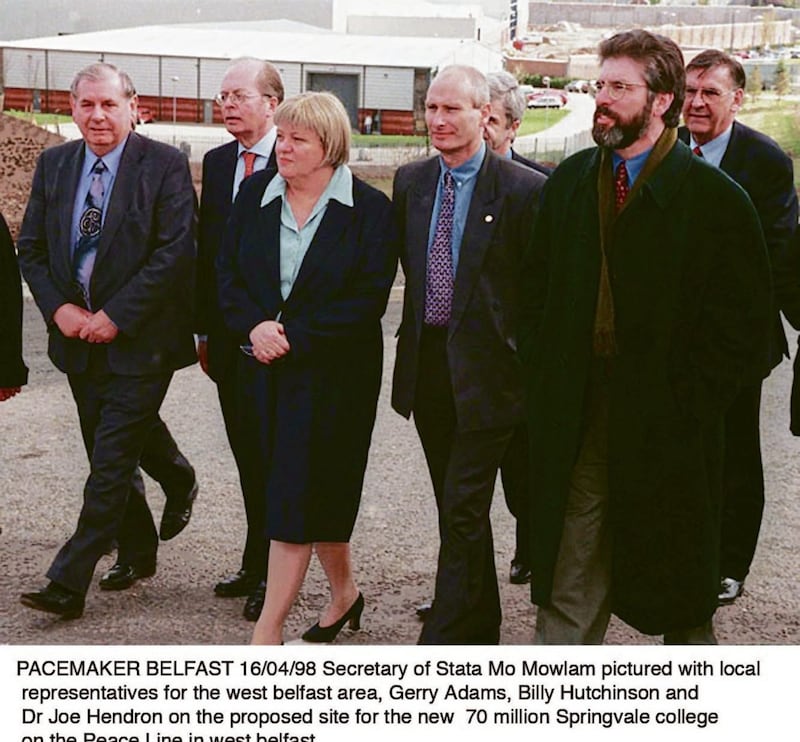BORN in London's East End in 1937, his father having spent time in a workhouse as a child, Trevor Smith 'failed' his 11-plus, left boarding school after three weeks, and left school entirely at the age of 16.
But after studying A-levels at night and enrolling for a degree at the London School of Economics, he went on to be a lecturer, serve as Vice-Chancellor of the University of Ulster (UU), stand as the youngest ever candidate for Westminster, and make valued contributions as a Liberal member of the House of Lords.
Lord Smith was head of UU during the peace process years from 1991-99 and his own major contribution in those days of hope for a new Northern Ireland was a radical plan to provide ladders of educational opportunity across the sectarian divide.
The Springvale educational village would bring together community, further and higher education for the first time on a new campus symbolically straddling a peaceline in a deprived area between north and west Belfast.
A joint project with Belfast Institute of Further and Higher Education and local community groups, students could theoretically progress from basic literacy courses in a community outreach centre all the way to degree courses and high-tech research - all on one site.
The £71m scheme won approval from secretary of state Mo Mowlam just days after the Good Friday Agreement and the site was formally dedicated by Tony Blair and Bill Clinton, with the US president describing it as a "living breathing monument to the triumph of peace".

However, after nine long years of planning, the plans were ultimately shelved as the university withdrew support following Lord Smith's departure.
UU cited financial concerns, but was criticised alongside the Department for Employment and Learning by auditors and the affair left a legacy of distrust.
Prof Patrick Murphy was director of Belfast Institute at the time and worked closely with Lord Smith on the Springvale plan.
He described him as a "visionary who recognised that higher education is a right for the many, not a privilege for the few".
"He could see the ridiculous nature of our education system which tries to identify those suitable for university at the age of 11.
"So he set about opening access to Ulster University for as many as possible so that he could find a way around the system and I was privileged to work with him to that end as a friend and colleague.
"His legacy will be a humanitarian commitment to education in the true meaning of the word and he will be remembered as an academic who devoted himself to breaking down the barriers to academia.
"He will be sadly missed."

Ulster University said he "left an important legacy in the promotion of equality and reconciliation across Northern Ireland and of supporting people from all backgrounds to access higher education".
"During his tenure at Ulster University, Lord Smith established Incore, the International Centre for Conflict Resolution.
"This globally recognised centre has grown from strength to strength, driving forward interdisciplinary research and teaching, uncovering and explaining the causes and consequences of conflict.
"Colleagues remember fondly his ability to inspire both with words and through leading by example, to challenge where it was needed and to strive to improve the lives of students, staff and the wider community through the work of higher education."
At the same time as leading UU, Lord Smith was chair of what is now the Joseph Rowntree Reform Trust, which funded projects and parties advocating democratic reform and constitutional change, including devolution in Edinburgh and Stormont.
Having stood for parliament unsuccessfully as a 22-year-old in the 1959 general election, he was elevated to the House of Lords in 1997 as Lord Smith of Clifton where he acted as the Liberal Democrats' spokesman on Northern Ireland.
He died aged 83 on April 24.






